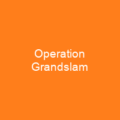The Democratic Republic of Congo (DRC) is a vast and complex country with a rich history that spans centuries. Imagine stepping into a time machine to explore its past, from the ancient Bantu migrations to the brutal colonial era and beyond. How does such a land, so abundant in natural resources, end up being one of the poorest nations on Earth? Let’s delve into this intriguing tale.
History and Colonial Legacy
The DRC has been inhabited for over 90,000 years, with evidence suggesting that early humans roamed its lands. The word ‘Kongo’ itself means ‘to gather,’ a fitting description of the diverse ethnic groups that call this land home. Yet, it was not until the late 19th century that Belgium’s King Leopold II claimed the territory as his personal fiefdom, renaming it the Congo Free State. This period saw unimaginable exploitation and violence, with millions dying under the regime’s brutal rule.
Independence and Instability
The DRC gained independence in 1960, but the journey to stability was fraught with challenges. The country has experienced numerous civil wars, each leaving a trail of destruction and loss. Patrice Lumumba, the first democratically elected prime minister, was tragically assassinated just months after taking office. His death marked the beginning of a series of coups and conflicts that have plagued the nation ever since.
Geography and Natural Resources
The DRC is the second-largest country in Africa, with an area larger than Western Europe. Its geography is dominated by the Congo River, which flows through the heart of the country, providing a vital lifeline for transportation and trade. The river’s vast watershed supports diverse ecosystems, from dense rainforests to savannas, teeming with wildlife like gorillas and chimpanzees.
Environmental Challenges
Despite its natural wealth, the DRC faces significant environmental challenges. Deforestation, poaching, and mining have taken a toll on the country’s biodiversity. The rate of deforestation has doubled in recent years, threatening not only the environment but also the livelihoods of local communities who depend on these resources.
Economy and Mining
The DRC is rich in natural resources, particularly cobalt, which is crucial for electric vehicle production. However, corruption and instability have hindered foreign investment, leaving much of the country’s wealth untapped. The mining sector, while vital, has been marred by issues like artisanal mining and conflict minerals.
Foreign Relations
The DRC’s strategic location makes it a key player in regional politics. Its natural resources attract international attention, with countries like China investing heavily in the mining industry. The US aims to professionalize the Congolese armed forces and secure these critical materials for its own industries.
Human Rights and Governance
The DRC has a long history of human rights abuses, including the use of child soldiers, forced labor, and widespread violence against women. Corruption is rampant, with many leaders accused of embezzlement and abuse of power. Despite efforts to improve transparency, the fight against corruption remains an uphill battle.
Recent Developments
In recent years, there have been some positive developments. President Félix Tshisekedi has taken steps to address corruption and promote economic growth. However, challenges remain, with ongoing conflicts in eastern regions and concerns about the rule of law.
Culture and Society
The DRC’s culture is a vibrant tapestry woven from its diverse ethnic groups. Traditional religions coexist with Christianity, while music and literature reflect the country’s rich heritage. Despite these cultural treasures, the DRC faces significant social challenges, including high rates of poverty, hunger, and disease.
Conclusion
The Democratic Republic of Congo is a land of immense potential, yet its history is marred by conflict, exploitation, and corruption. As we look to the future, it’s clear that addressing these issues will require sustained effort from both the government and international partners. The DRC has the resources and talent to overcome its challenges, but it needs support to turn this potential into reality.

You want to know more about Democratic Republic of the Congo?
This page is based on the article Democratic Republic of the Congo published in Wikipedia (retrieved on February 27, 2025) and was automatically summarized using artificial intelligence.





